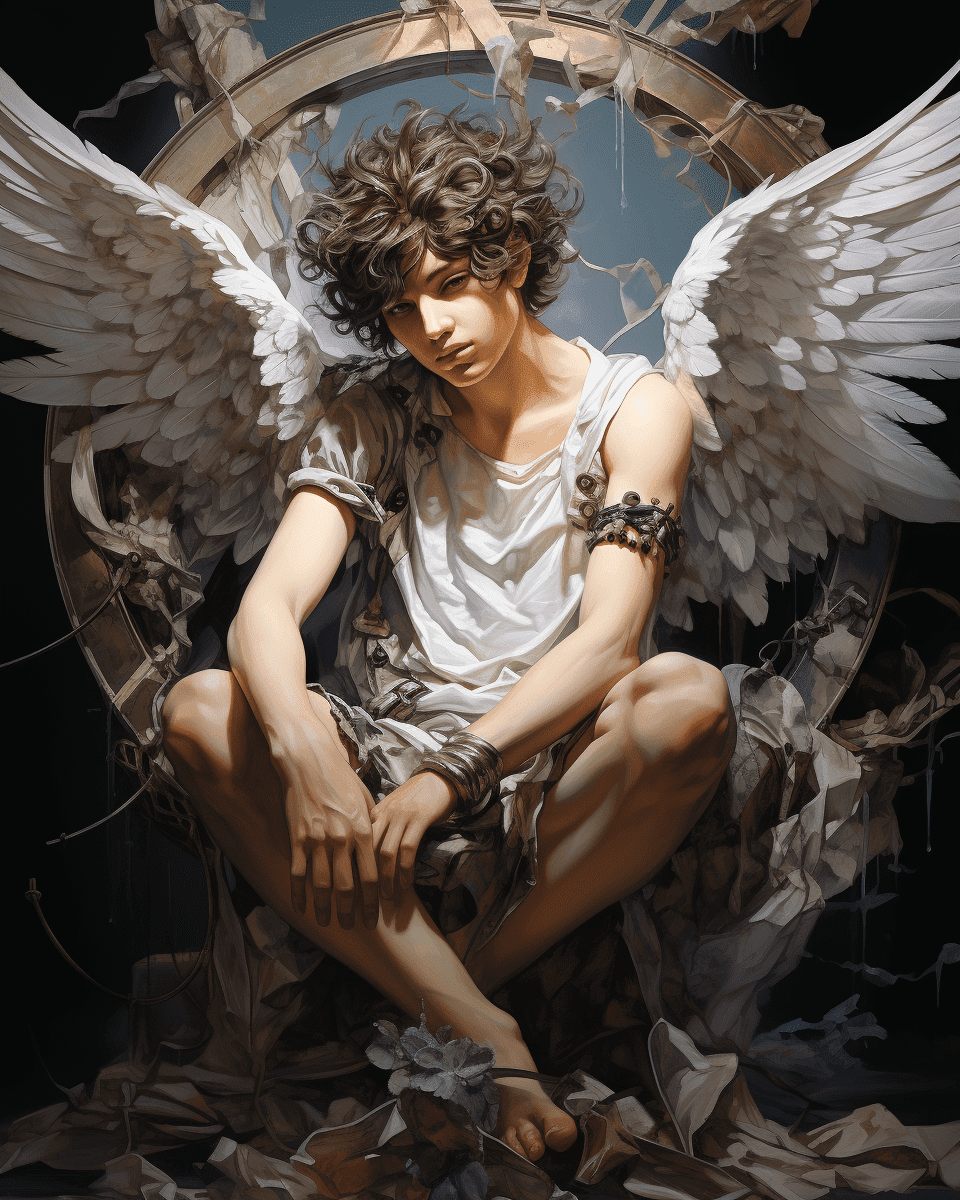Ares, the god of war and Aphrodite’s lover, frequently referred to Eros, a Greek deity of lust and primal sexual desire, as being his son. In fact, his name is the source of the word erotic. He was revered as the core of a fertility cult that celebrated both Eros and Aphrodite. He is personified in all forms of love and lust, both heterosexual and homosexual. Eros, the Greek god of love, was not only associated with lust and desire but also played a crucial role in the realm of relationships and emotions. As the son of Aphrodite and Ares, he embodied the passionate and sometimes turbulent aspects of love. His influence extended beyond mere physical attraction, encompassing all forms of affection, be it romantic, platonic, or familial. Eros was venerated in ancient Greek society, where he was regarded as a key figure in fostering fertility and promoting procreation. Couples seeking to conceive often prayed to him, seeking his blessing and assistance. The cult of Eros and Aphrodite, with its emphasis on love and sensuality, permeated Greek culture, influencing art, literature, and religious practices. While Eros is commonly associated with heterosexual desire, it is important to note that he was also revered as the patron of same-sex relationships. In Greek mythology, love knew no boundaries or limitations, and Eros personified this inclusive and diverse nature of human affection and desire.

Eros’ family background seems to be a bit of a topic for debate. According to later Greek mythology, he is supposedly Aphrodite’s son, but Hesiod depicts him more as a servant or helper to her. There are also other stories suggesting that Eros is the child of Iris and Zephyrus, or even that he is the offspring of Nyx and Erebus, or perhaps even Chaos itself, which would make him an extremely ancient deity.
Eros became Cupid throughout the classical Roman period and was depicted as the chubby cherub that is still a popular picture today. He’s usually depicted blindfolded—after all, love is blind—and wielding a bow, shooting arrows at his selected targets. During Valentine’s Day, he is frequently invoked as a god of pure love as Cupid, although in his original form, Eros was largely about lust and passion.
Starting in the fifth century B.C., Eros was venerated alongside Aphrodite on the acropolis in the city of Athens. Every spring, a festival honoring Eros was held. After all, spring is the season of fertility, so what better time to honor a deity of passion and lust than during this season? The Erotidia, which took place in March or April, featured sporting events, games, and art.
Some Hellenic polytheists continue to venerate Eros in their devotion today. Fruits like apples and grapes, as well as flowers that symbolize love, such as roses, are appropriate presents to Eros. A bow and arrow, or symbols of them, might also be placed on your altar. Consider fertility symbols like rabbits and eggs if you’re honoring Eros as a fertility deity rather than a desire deity.





